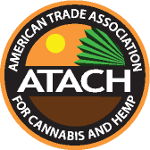Utah
- Overview of Cannabis and Hemp Laws
Cannabis:
- Medical Use: Legalized in 2018 through Proposition 2, permitting medical cannabis for patients with qualifying conditions (Utah Code Ann. § 26-61a).
- Recreational Use: Recreational cannabis remains illegal in Utah; possession without a medical card is prohibited.
Hemp Intoxicants and Synthetic THC: Utah regulates hemp intoxicants within its cannabis program under a framework of integrated cannabis regulations.
- Historical Context
- Early 20th Century: Cannabis prohibition begins in Utah.
- 2018: Medical cannabis is legalized through Proposition 2 after extensive debate and legislative modification.
- Post-2018: Following the federal Farm Bill, Utah establishes hemp regulations and integrates synthetic cannabinoids within its cannabis regulatory framework.
- Recreational Cannabis Laws
- Possession Limits: All recreational cannabis possession is illegal.
- Cultivation: Home cultivation is prohibited, including for medical patients.
- Public Use: Public cannabis use, both medical and recreational, is illegal.
- Sale and Retail: Recreational cannabis sales are prohibited; only licensed medical dispensaries may dispense cannabis to registered patients.
- Medical Cannabis Laws
- Patient Eligibility: Qualifying conditions include chronic pain, PTSD, epilepsy, and other serious medical conditions as defined in the Utah Medical Cannabis Act.
- Product Access: Approved forms include pills, oils, and non-smokable products. Flower is allowed for vaporization only.
- Program Details: Patients must register with the Utah Department of Health, and purchase limits are enforced at licensed dispensaries.
- Hemp-Derived Intoxicants
- Regulatory Status: Utah classifies hemp-derived intoxicants under its “Regulated (Integrated with Cannabis)” framework, treating them similarly to cannabis products.
- Testing and Labeling: All products must meet testing standards for potency and safety, with strict labeling requirements for contents, potency, and usage warnings.
- Age and Retail Restrictions: Access to intoxicating hemp products is restricted to individuals 21 and older, with sales permitted only through licensed dispensaries.
- Criminal Penalties for Cannabis Offenses
- Possession: Possession of less than one ounce without a medical card is a misdemeanor, potentially leading to six months in jail and a fine.
- Sale and Distribution: Unauthorized sale of any cannabis product, including hemp-derived intoxicants, is a felony with varying penalties based on quantity and recipient (e.g., higher penalties for sales to minors).
- Trafficking and Cultivation: Unauthorized cultivation or large-scale trafficking incurs felony charges, with penalties that include substantial prison terms and fines.
- Social Equity Programs
- Eligibility Criteria: Utah does not have a social equity program specifically addressing individuals impacted by past cannabis laws.
- Licensing Benefits: No preferential licensing or reduced fees are offered for equity applicants within Utah’s cannabis program.
- Additional Support: No targeted resources or support programs exist for social equity applicants in the cannabis industry.
- Business Types and Operations
- Licensing Types: Utah issues licenses for cultivation, processing, testing, and medical dispensaries.
- Regulatory Requirements: Licensed businesses must adhere to stringent operational standards, including security protocols, record-keeping, and full compliance with the state’s medical cannabis regulations.
